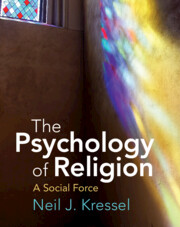In this article I analyze two brief case studies to propose that a “spiritual strength story” has five defining characteristics: (1) it is brief; (2) it is ontological; (3) it uses symbols and metaphors; (4) it is a “big story” or meta-narrative with a positive spiritual and/or religious focus that informs other narrative data; and (5) most conspicuously of all, it repeats. Cultivating awareness of the “spiritual strength” narrative type can help to improve the quality of inter-professional patient-centered care teamwork and understanding, especially in regard to the reflexive, embodied, and relational aspects of palliative and end-of-life care.
